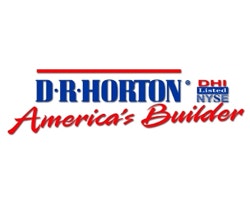For the sixth straight month, more than 70% of all American metropolitan areas are showing growth in their housing markets. That’s according to a study released on Monday by the National Association of Homebuilders, called the Improving Market Index. Despite this impressive growth, home prices nationwide are still about 25% below their pre-recession highs, showing just how far a housing recovery might have to run. Dividend investors can have a hard time taking advantage of this comeback story, however. The major homebuilders like D.R. Horton, Inc. (NYSE:DHI) and Lennar Corporation (NYSE:LEN) cut their dividends in the aftermath of the subprime mortgage meltdown, and those few homebuilders that offer a dividend at all yield less than half a percent. Instead, let’s look at two companies that are not only poised to profit handsomely from the housing recovery, but are also renowned for their legendary, rock-solid dividends.
Dig into Caterpillar
Rising home sales means new homes getting built, and new neighborhoods need new roads, new schools, new water systems, and sometimes the demolition of older infrastructure. All of these jobs require heavy equipment, and in North America the dominant heavy equipment supplier is none other than top-tier dividend stock Caterpillar Inc. (NYSE:CAT). During the recession, construction nationwide slowed and equipment dealers ran down their inventories, putting pressure on Caterpillar’s profits in its home market. Strong growth in housing will force dealers to quickly build out their inventories, as homebuilders and infrastructure providers like governments replace aging machines and expand their equipment stocks to meet demand.
In 2006, at the height of the most recent building boom, Caterpillar Inc. (NYSE:CAT)’s machinery segment, which is primarily focused on construction equipment, hit over $14 billion in North American sales. In 2012, taking into account an internal reorganization to break mining equipment out into its own segment, Caterpillar’s North American construction industries sales were just over $7 billion. Together with Caterpillar’s extensive North American financing business, a more robust American housing market could provide a windfall for Caterpillar and its investors.
Caterpillar Inc. (NYSE:CAT) stock pays a dividend yielding around 3%, and the company has a long history of raising the dividend in good times and bad. CEO Doug Oberhelman has pledged the company will “never, ever” cut a dividend, and the company’s strong profitability and conservative payout ratio leave the company free to continue increasing the dividend throughout the business cycle.
One man’s trash…
Another winner in a recovering housing market is Waste Management, Inc. (NYSE:WM). Commanding the largest number of landfills, transfer stations, and trash collection routes in the U.S., Waste Management’s physical assets present formidable barriers to entry for competitors, and leave the company uniquely positioned to profit from new home construction.
Waste Management, Inc. (NYSE:WM) will benefit in two ways from a stronger housing market. First, and most immediately, Waste Management will win contracts with home and infrastructure builders to dispose of the waste generated in the demolition and building of new structures. The company’s physical assets, scale, and market information help it to compete on price, while the company’s experience with and dedication to sustainability projects, including its knowledge of the valuable LEED certification process, help Waste Management to compete on quality as well.
Secondly, a stronger housing market will boost Waste Management, Inc. (NYSE:WM)’s core solid waste collection business. Expanding neighborhoods will create new collection routes for the company, and more households will generate more household waste, but perhaps most important will be the effect on municipal budgets. Waste Management’s profit margin has been squeezed in the aftermath of the recession as municipalities, reeling from the loss of tax revenue, have forced down the pricing on new solid waste contracts. Higher home prices will lead to higher property taxes, which in most municipalities is the leading source of revenue for local infrastructure spending including trash collection and recycling. When local governments are taking in more revenue, Waste Management will be better able to push pricing increases on to its customers.
Waste Management, Inc. (NYSE:WM)’s stock yields a dividend of about 3.5%, and the company has raised the dividend steadily right through the worst of the recession years. Waste Management has a relatively high payout ratio, with dividend payments taking up about 80% of earnings per share, but the essential nature of the waste business gives the company very consistent and visible income that it calls “annuity-like revenue.” The stock is richly valued at the moment, selling for around 23 times earnings, but the reliability of its earnings and dividend make Waste Management a very low-risk way to play the housing recovery and generate good dividend income.
The article 2 Solid Dividend Stocks to Buy for a Housing Recovery originally appeared on Fool.com and is written by Daniel Ferry.
Fool contributor Daniel Ferry owns shares of Waste Management and Caterpillar. The Motley Fool recommends Waste Management. The Motley Fool owns shares of Waste Management.
Copyright © 1995 – 2013 The Motley Fool, LLC. All rights reserved. The Motley Fool has a disclosure policy.






